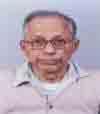What Does This TMT Report Indicate?

Posted on
Mon, 28 Mar 2016
Medically reviewed by
Ask A Doctor - 24x7 Medical Review Team
 Mon, 28 Mar 2016
Answered on
Mon, 28 Mar 2016
Answered on
 Wed, 1 Jun 2016
Last reviewed on
Wed, 1 Jun 2016
Last reviewed on
Question : Hi, i am 48 yrs, recently went for TMT , findings were: No significant segment changes noted during exercise or recovery.
No Angina/Arrhythmia/s3/murmur.
Final impression : Test is negative for inducible ischaehmia. XXXXXXX depression ; 5;52 XXXXXXX HR attained : 180 bpm, 105% of XXXXXXX predictable HR172 XXXXXXX BP : 170/90 ( mmHg )
Pl explain.
No Angina/Arrhythmia/s3/murmur.
Final impression : Test is negative for inducible ischaehmia. XXXXXXX depression ; 5;52 XXXXXXX HR attained : 180 bpm, 105% of XXXXXXX predictable HR172 XXXXXXX BP : 170/90 ( mmHg )
Pl explain.
Brief Answer:
TMT is a test for effort angina
Detailed Answer:
Thanks for asking on Healthcaremagic.
TMT or Tread Mill Test is a test to assess effort angina. During exercise the oxygen demand of our body and thereby the heart increases. In case of ischemic heart disease, this increased oxygen demand is not met and so certain changes in ECG occur while chest pain and breathlessness is observed. No such finding has occurred in your case (it is normal to have some exertion and fatigue). That indicates that your exercise tolerance is fine and no interventions are needed as of now.
Nevertheless, regular morning walk would be helpful.
Regards
TMT is a test for effort angina
Detailed Answer:
Thanks for asking on Healthcaremagic.
TMT or Tread Mill Test is a test to assess effort angina. During exercise the oxygen demand of our body and thereby the heart increases. In case of ischemic heart disease, this increased oxygen demand is not met and so certain changes in ECG occur while chest pain and breathlessness is observed. No such finding has occurred in your case (it is normal to have some exertion and fatigue). That indicates that your exercise tolerance is fine and no interventions are needed as of now.
Nevertheless, regular morning walk would be helpful.
Regards
Above answer was peer-reviewed by :
Dr. Deepak

Answered by

Get personalised answers from verified doctor in minutes across 80+ specialties



